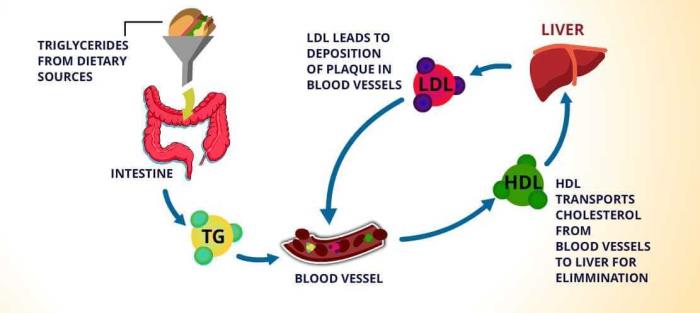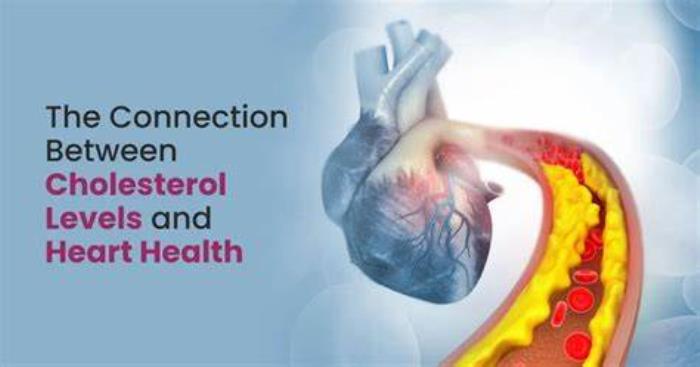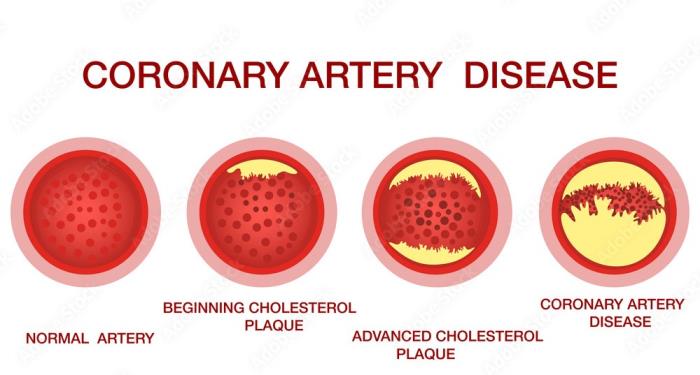Cholesterol is a waxy substance found in every cell of the body and plays a vital role in several bodily functions, including the production of hormones, vitamin D, and substances that help digest food. However, when cholesterol levels become imbalanced, particularly high levels of low-density lipoprotein (LDL) cholesterol, it can significantly increase the risk of heart disease. Understanding the different types of cholesterol and their effects on heart health is essential for maintaining cardiovascular wellness and preventing serious health complications.
What is Cholesterol? The Basics Explained
Cholesterol is a fatty substance that is essential for the body's normal functioning. It is produced by the liver and is also obtained from certain foods, especially animal products. Cholesterol travels through the bloodstream attached to proteins, forming lipoproteins. These lipoproteins transport cholesterol to various tissues in the body, where it is used for crucial functions such as building cell membranes and producing hormones. While cholesterol is necessary for health, maintaining balanced levels is important, as both low and high levels can lead to health issues.
Types of Cholesterol: HDL, LDL, and Triglycerides
Cholesterol is primarily categorized into two types based on the density of the lipoproteins: high-density lipoprotein (HDL) and low-density lipoprotein (LDL). HDL is often referred to as "good" cholesterol because it helps remove excess cholesterol from the bloodstream, transporting it back to the liver for disposal. In contrast, LDL is known as "bad" cholesterol, as high levels can lead to plaque buildup in the arteries, increasing the risk of heart disease. Additionally, triglycerides are another type of fat found in the blood; high triglyceride levels can also contribute to heart disease, especially when combined with high LDL cholesterol.

How High LDL Cholesterol Contributes to Heart Disease
High levels of LDL cholesterol are a major risk factor for heart disease. When LDL cholesterol levels are elevated, excess cholesterol can accumulate in the walls of arteries, leading to the formation of plaque—a thick, hard deposit that narrows the arteries and reduces blood flow. This condition, known as atherosclerosis, can lead to serious complications, including heart attacks and strokes. As the arteries become more obstructed, the heart must work harder to pump blood, which can strain the heart and contribute to other cardiovascular issues.
The Role of HDL Cholesterol in Protecting Heart Health
HDL cholesterol plays a protective role in heart health by helping to clear excess cholesterol from the bloodstream. It facilitates the transport of cholesterol back to the liver, where it can be metabolized and excreted. Higher levels of HDL cholesterol are associated with a lower risk of heart disease because it counteracts the harmful effects of LDL cholesterol. Encouragingly, lifestyle factors such as regular exercise, a healthy diet, and not smoking can help raise HDL levels and promote cardiovascular health.
The Link Between High Cholesterol and Atherosclerosis
The relationship between high cholesterol levels and atherosclerosis is well-established. When cholesterol levels, particularly LDL cholesterol, are elevated, they contribute to the formation of plaque in the arteries. This plaque buildup narrows the arteries, restricting blood flow and increasing the risk of cardiovascular events such as heart attacks and strokes. Managing cholesterol levels through lifestyle changes and, when necessary, medication is essential for preventing atherosclerosis and maintaining overall heart health. Regular screenings for cholesterol levels can help individuals assess their risk and take proactive steps to safeguard their cardiovascular system.

How Plaque Buildup in Arteries Leads to Heart Disease
Plaque buildup in the arteries, known as atherosclerosis, occurs when fatty deposits, cholesterol, and other substances accumulate on artery walls. This narrowing restricts blood flow and can lead to serious cardiovascular events, including heart attacks and strokes. Over time, plaque can harden or rupture, forming blood clots that obstruct blood flow to the heart.
Understanding Cholesterol and Coronary Artery Disease
Cholesterol is a waxy substance found in your blood that is essential for building cells but can become problematic in excess. Coronary artery disease (CAD) occurs when cholesterol plaques clog the coronary arteries, reducing blood flow to the heart muscle and increasing the risk of heart disease.

Risk Factors for High Cholesterol and Heart Disease
Several factors can contribute to high cholesterol levels, including:
Diet:
High intake of saturated and trans fats can raise cholesterol levels.
Genetics:
Family history can influence cholesterol levels and heart disease risk.
Age and Sex:
Cholesterol levels tend to rise as you age; men are typically at higher risk earlier than women.
Lifestyle:
Sedentary behavior, smoking, and excessive alcohol consumption can increase cholesterol levels and heart disease risk.
How to Monitor and Manage Cholesterol Levels
Regular monitoring of cholesterol levels is crucial for managing heart health. This typically involves a blood test called a lipid panel, which measures total cholesterol, LDL (bad cholesterol), HDL (good cholesterol), and triglycerides. If levels are elevated, healthcare providers may recommend lifestyle changes or medications.
The Impact of Diet on Cholesterol and Heart Health
Diet plays a significant role in cholesterol management. Eating a heart-healthy diet that emphasizes whole grains, fruits, vegetables, lean proteins, and healthy fats can help lower cholesterol levels and reduce the risk of heart disease.
Foods That Help Lower Bad Cholesterol (LDL)
Certain foods are known to help lower LDL cholesterol levels, including:
Oats and Barley
Rich in soluble fiber, which can reduce LDL levels.
Nuts
Almonds and walnuts can improve heart health.
Fatty Fish
Rich in omega-3 fatty acids, which can help lower cholesterol.
Olive Oil
Contains healthy fats that can benefit heart health.
Fruits and Vegetables
High in fiber and antioxidants that support overall health.
Exercise and Its Role in Improving Cholesterol Levels
Regular physical activity can help raise HDL cholesterol (good cholesterol) and lower LDL cholesterol (bad cholesterol). Aim for at least 150 minutes of moderate aerobic exercise weekly to improve cholesterol levels and support heart health.
The Role of Medications in Managing High Cholesterol
For some individuals, lifestyle changes alone may not be sufficient to lower cholesterol levels. Medications, including statins and other cholesterol-lowering drugs, may be necessary to help manage high cholesterol effectively.
Statins and Other Cholesterol-Lowering Drugs: How They Work
Statins work by inhibiting a liver enzyme responsible for cholesterol production, which helps lower LDL levels. Other medications, such as bile acid sequestrants and PCSK9 inhibitors, can also help lower cholesterol levels through different mechanisms.
Genetic Factors: Familial Hypercholesterolemia and Heart Disease Risk
Familial hypercholesterolemia is a genetic disorder that results in high cholesterol levels from birth. Individuals with this condition are at an increased risk for early heart disease and require more aggressive management strategies, including diet, lifestyle changes, and medications.
Cholesterol Levels and the Risk of Heart Attack and Stroke
High cholesterol levels, particularly elevated LDL cholesterol, are associated with an increased risk of heart attack and stroke. Keeping cholesterol levels within the recommended range is crucial for reducing cardiovascular risk.
Lifestyle Changes for Long-Term Cholesterol Control
To maintain healthy cholesterol levels, consider implementing the following lifestyle changes:
Eat a Heart-Healthy Diet
Focus on whole foods and healthy fats.
Exercise Regularly
Aim for at least 150 minutes of aerobic exercise weekly.
Maintain a Healthy Weight
Losing excess weight can improve cholesterol levels.
Avoid Tobacco Smoke and Limit Alcohol Consumption
Both can negatively impact heart health.
The Importance of Regular Cholesterol Screenings
Regular cholesterol screenings are vital for early detection and management of high cholesterol. Adults should have their cholesterol checked at least every 4-6 years, but more frequent screenings may be necessary for those with risk factors.
Impact of High Blood Pressure on Heart Health and Angioplasty
Learn about the effects of high blood pressure on heart health and its implications for angioplasty. This section covers how hypertension can exacerbate cardiovascular issues, the importance of blood pressure management, and how it relates to the success of angioplasty procedures.
Understanding the Different Types of Stents Used in Angioplasty
Explore the various types of stents utilized in angioplasty. This section details the differences between bare-metal and drug-eluting stents, their applications, and the advantages and disadvantages of each type, helping patients make informed decisions about their treatment options.
Conclusion: Lowering Cholesterol for Better Heart Health
Managing cholesterol levels through lifestyle changes, regular screenings, and medications when necessary is crucial for reducing the risk of heart disease. Taking proactive steps can significantly improve heart health and overall well-being.
Best Coronary Angioplasty in India
The Best Coronary Angioplasty in India is a minimally invasive procedure that helps restore blood flow to the heart by widening blocked arteries, improving cardiovascular health and reducing chest pain.
Best Coronary Angioplasty Hospitals in India
The best coronary angioplasty hospitals in india offer state-of-the-art facilities and highly skilled cardiology teams, ensuring comprehensive pre- and post-operative care for effective treatment outcomes.
Coronary Angioplasty Cost in India
The coronary angioplasty cost in india is affordable, with transparent pricing and flexible options, making high-quality cardiovascular care accessible for patients.
Best Coronary Angioplasty Surgeons in India
The Best Coronary Angioplasty Surgeons in India are experienced specialists in interventional cardiology, dedicated to providing personalized and effective treatment for each patient.
FAQ
What is the difference between good and bad cholesterol?
Good cholesterol (HDL) helps remove other forms of cholesterol from the bloodstream, while bad cholesterol (LDL) can build up in the arteries, leading to blockages and heart disease.
How does high cholesterol cause heart disease?
High cholesterol leads to plaque buildup in the arteries, narrowing them and restricting blood flow. This increases the risk of heart attacks and strokes.
Can lowering cholesterol reduce the risk of heart disease?
Yes, lowering cholesterol levels, particularly LDL cholesterol, can significantly reduce the risk of developing heart disease and related cardiovascular events.
What foods should I eat to lower my cholesterol?
Focus on foods high in fiber, healthy fats, and omega-3 fatty acids, such as oats, nuts, fatty fish, and fruits and vegetables.
How often should I have my cholesterol levels checked?
Adults should have their cholesterol levels checked at least every 4-6 years, but more frequent checks may be recommended for those with risk factors.
Explore the Best Heart Care Resources in India
Find some of the top cardiologist, surgeons and the best heart hospitals in India
Best Heart Hospitals in India
Choosing the right hospital is crucial for successful heart treatments. If you want to explore trusted options, check the list of Best Heart Hospitals in India offering world-class facilities, advanced cardiac care units, and experienced teams for both simple and complex procedures.
Best Cardiologists in India
Finding the right cardiologist can make a huge difference in early diagnosis and long-term heart health. If you are looking for the Best Cardiologists in India, see this curated list of experts who specialize in preventive care, interventional cardiology, and complex heart disease management. Check the full list Best Cardiologists in India.
Best Cardiac Surgeons in India
If you are planning for heart surgery and need top-level expertise, we recommend exploring the Best Cardiac Surgeons in India. These surgeons have a proven record in performing bypass surgeries, valve replacements, and minimally invasive heart operations with excellent outcomes.